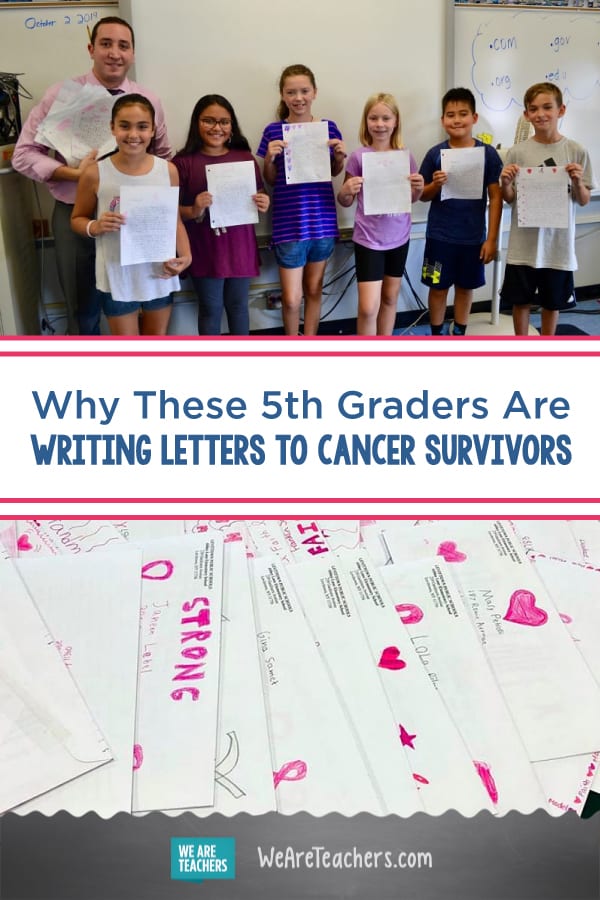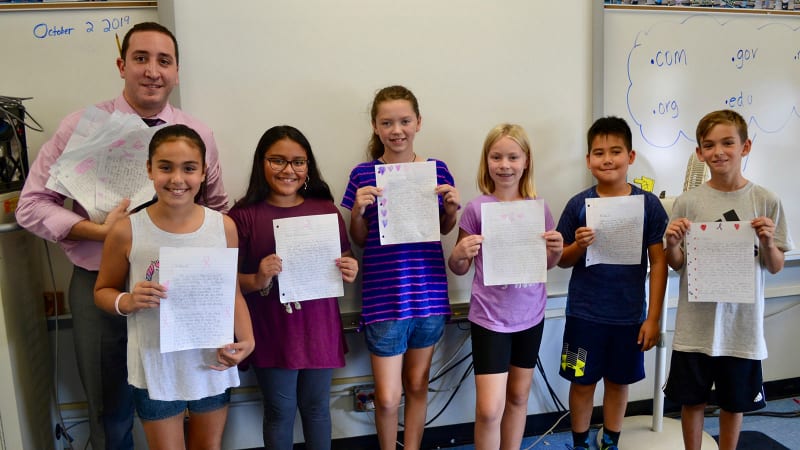This October, students at Abbey Lane Elementary School in Levittown, New York, will take on a project that helps make the lives of cancer patients, survivors, and their families just a little bit brighter. They’re writing letters to cancer survivors to give them hope and encouragement.
“We’ve written to people in 45 states and 18 different countries,” says teacher Richard Schwartz, who spearheaded the project. “This has been an amazing experience, and it’s led to more teaching opportunities and life lessons than I ever expected.”
It all started with a teacher.
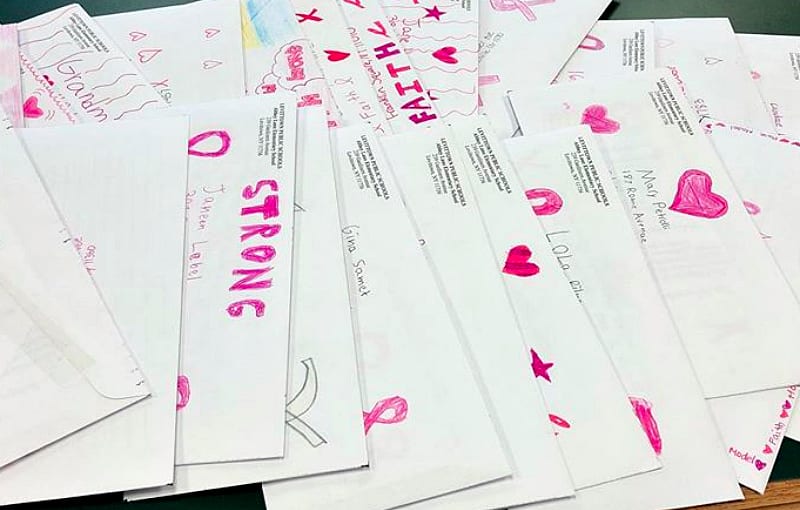
This letter-writing project started because of Schwartz’s high school drama teacher, Mrs. Gina Samet, who had breast cancer. She was one of his most influential teachers, and Schwartz remembers her having a tough time while she was going through cancer treatment. So then when he became a teacher, he thought of a way to give back to her after all those years.
“I asked her if my class could write her a letter to recognize her for being a survivor,” Schwartz says. “Then it just took off from here.”
Mrs. Samet loved the idea and asked if the class would also consider writing letters to cancer survivors in her network. Schwartz then set a goal: During the month of October, he wanted each of his students to write a letter to someone who had been impacted by cancer. The names poured in, and students soon hit their goal of writing 24 letters, but they weren’t done yet. They kept writing, eventually sending out more than 100 letters.
Tackling the topic of cancer.
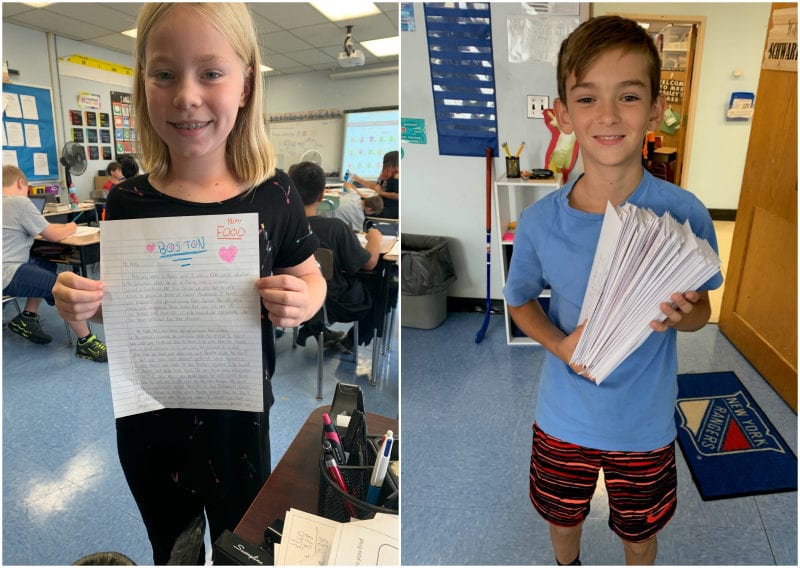
Not all teachers would be comfortable taking classroom time to talk about cancer, but Schwartz says he’s glad he is. So many lives are affected by cancer, both directly and indirectly, so he wants to discuss it with his kids.
“I was nervous at first, but I’ve seen how this has captivated my students and brought us together as a classroom family,” he says. “After we completed this project last October, we were a completely different class for the rest of the year.”
As part of the letter-writing process, Schwartz talks to his students about what should be in the letter. They start with a template, but then he talks to them about personalizing the message and making the letter special for each person. He also talks to his students about understanding their recipients and what each person might be going through. For instance if someone is still battling cancer, he talks to his students about what this means and what that person might be going through. This would be a very different letter than one for someone who has lost a family member to cancer.
Kids realize that they can make a difference.
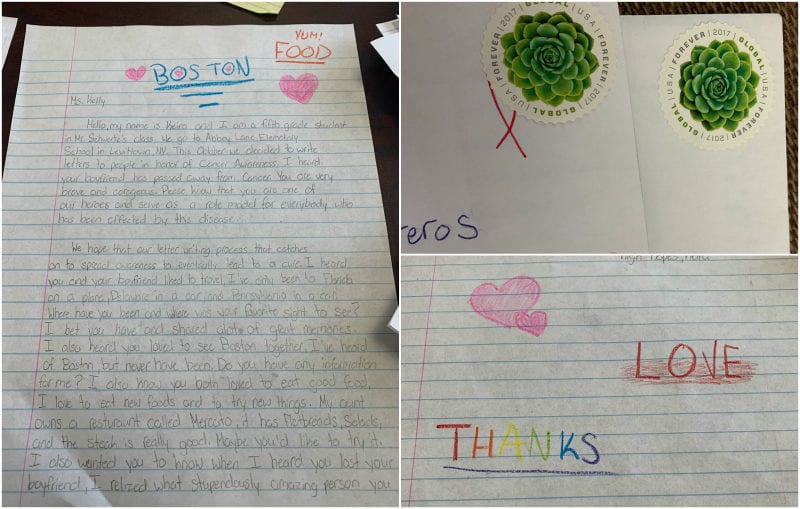
While the students don’t write letters to recipients necessarily expecting to get a response, Schwartz says it’s really awesome when they do. The students do write about themselves and ask questions in their letters, so they leave an opportunity for a response.
Last year, his students loved getting those responses. They were asking Schwartz to check his teacher mailbox two to three times a day, and when someone did write back, it was so meaningful. Students would share by reading the letters they received out loud to the class.
“Watching a student’s face light up when they get a response is so powerful,” Schwartz says. “They see we’re doing a good thing and that we’re making an impact.”
This year, Schwartz and his students are hoping to increase their goal and write more than 500 letters. And at the same time, they hope to inspire other students and classrooms to start their own letter-writing campaigns through their website and Instagram account.
“I heard from a school in Hawaii that they want to follow our example and do something similar,” Schwartz says. “This makes us so happy to see others following our lead. We’re creating so many more smiles than we ever thought or intended.”
Want to learn more about writing letters to cancer survivors? You can reach Schwartz through his website or from this story on his school’s website.
If you’ve done something similar, please tell us about it. Post on our WeAreTeachers HELPLINE group on Facebook . We’d love to hear about it!
